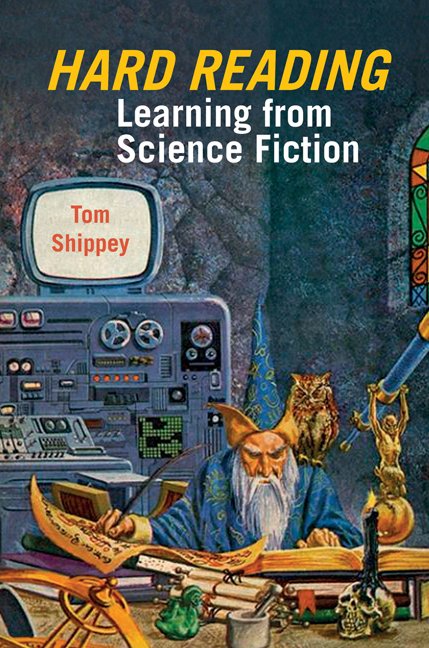Book contents
- Frontmatter
- Dedication
- Contents
- List of Figures
- Note on References
- A Personal Preface
- What SF Is
- SF and Change
- 4 Getting Serious with the Fans
- 5 Getting to Grips with the Issue of Cultures …
- 6 … And Not Fudging the Issue!
- 7 SF Authors Really Mean what they Say
- 8 A Revealing Failure by the Critics
- 9 A Glimpse of Structuralist Possibility
- 10 Serious Issues, Serious Traumas, Emotional Depth
- SF and Politics
- References
- Index
7 - SF Authors Really Mean what they Say
from SF and Change
- Frontmatter
- Dedication
- Contents
- List of Figures
- Note on References
- A Personal Preface
- What SF Is
- SF and Change
- 4 Getting Serious with the Fans
- 5 Getting to Grips with the Issue of Cultures …
- 6 … And Not Fudging the Issue!
- 7 SF Authors Really Mean what they Say
- 8 A Revealing Failure by the Critics
- 9 A Glimpse of Structuralist Possibility
- 10 Serious Issues, Serious Traumas, Emotional Depth
- SF and Politics
- References
- Index
Summary
This piece was first delivered on 22 March 1996 as the Guest Scholar lecture at the International Conference for the Fantastic in the Arts, held every year in Fort Lauderdale, Florida. The audience consisted mostly of academics, not all of them concerned with science fiction – ‘the fantastic’ is a much bigger category than sf, and includes, besides fantasy, much more ‘canonical’ material like ‘magic realism’. This must serve as my excuse for dragging in definitions of theoretical terms, though of course there was a point in doing so. One of the strange things about too many literary critics is that while they no doubt mean what they say, they do not mean it literally. They proclaim (following both de Saussure and T.S. E liot) that words have no fixed meaning, but in everyday life they expect to get exactly what they ask for. They are all for diversity and against canonicity, but all too often anything that does not fit the agenda (like sf, not to mention Tolkien) will be written off as ‘not literature’. Challenge authority is the name of the game, but the authority of the liberal, middle-class, haut bourgeois literary profession is sacrosanct, as my colleague John Carey pointed out (see p. 4, above). And so on.
By contrast, sf authors really mean it. They do not think that things have to be the way they are, they are quite sure they are not going to stay that way, they enjoy stepping outside their own habitus and trying to see it from outside. All this means that the definitions of terms like ‘textuality’ and ‘différance’ – drawn up by literary scholars without reference to or awareness of sf – often fit sf much better than mainstream, or canonical, classics. It is one reason why I kept waving things during the 1996 lecture, as indicated in the text here by remarks within square brackets. I understand what is meant by saying ‘everything is a text’, and it is quite easy to demonstrate it, though in sf one would probably say, more accurately and less literarily, ‘everything contains information, if you know how to process it’.
- Type
- Chapter
- Information
- Hard Reading: Learning from Science Fiction , pp. 121 - 140Publisher: Liverpool University PressPrint publication year: 2016



